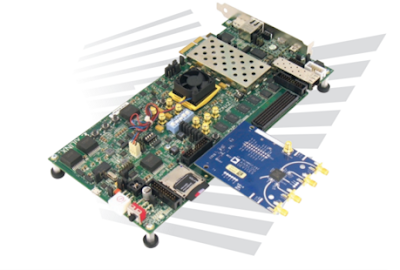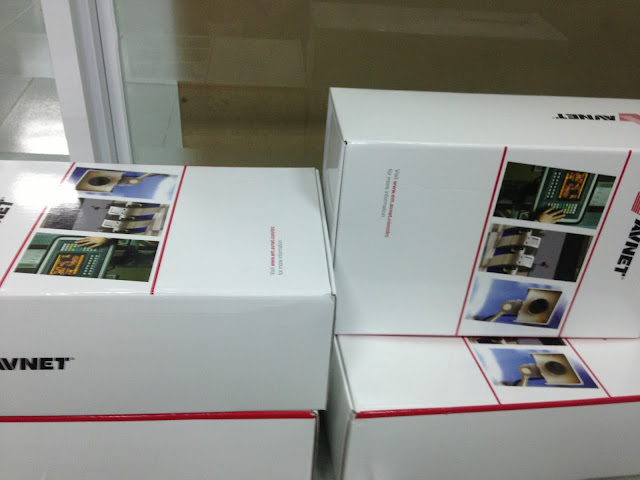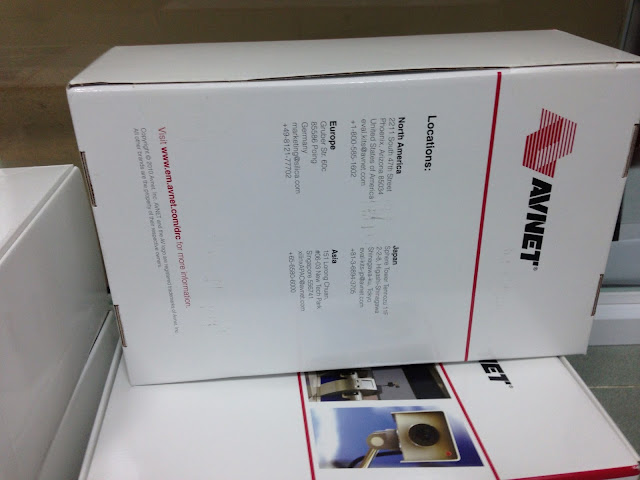Việt Nam lần đầu tổ chức hội nghị về vi mạch lớn nhất thế giới được TP HCM đăng cai tổ chức thu hút hàng trăm nhà khoa học hàng đầu tham dự.
Ngày 28/6, Hiệp hội kỹ sư điện, điện tử Hoa Kỳ (IEEE) phối hợp với Trung tâm nghiên cứu và đào tạo phát triển Vi mạch (ICDREC) lần đầu tổ chức hội nghị quốc tế về công nghệ bán dẫn – vi mạch mang tên IEEE Joint Conference ICICDT 2016 - tại Việt Nam.
Khoảng 200 chuyên gia là các nhà khoa học hoạt động trong lĩnh vực vi mạch trong nước và thế giới đến tham dự. Đặc biệt, hội nghị có sự góp mặt của 50 diễn giả là những giáo sư hàng đầu trong lĩnh vực thiết kế, chế tạo vi mạch đến từ Nhật, Mỹ, Pháp, Hàn Quốc, Thụy Sỹ, Đài Loan… Họ sẽ trình bày khoảng 60 tham luận, báo cáo khoa học trong chương trình.
Chủ đề thảo luận xoay quanh xu hướng phát triển công nghệ cũng như ứng dụng của sản phẩm vi mạch trên toàn cầu, từ di động đến thiết bị đeo và Internet of things. Bàn về tăng tốc thế giới cảm biến thông qua sự phát triển của công nghệ hình ảnh, việc lập một nhà máy chế tạo vi mạch không cần đầu tư lớn.
GSTS Đặng Lương Mô – nhà khoa học về vi mạch hàng đầu Việt Nam với khoảng 300 công trình nghiên cứu, hơn 10 phát minh - cho biết, đây là lần thứ 9 hội nghị ICICDT được tổ chức và lần này đăng cai tại TP HCM của Việt Nam. Trước đó, hội nghị từng diễn ra ở Pháp, Mỹ, Đài Loan, Italy, Bỉ…
"Đây là điều rất vinh dự cho thành phố khi trở thành điểm đến thứ 2 tại châu Á của hội nghị nổi tiếng của tổ chức IEEE", giáo sư Mô nói.
Ông Lê Thái Hỷ - Giám đốc Sở Thông tin Truyền thông TP HCM – thay mặt thành phố gửi lời cảm ơn đến các tổ chức khoa học trên thế giới đã hỗ trợ thành phố trong việc phát triển lĩnh vực vi mạch.
"Hội nghị là cơ hội để TP HCM học hỏi, trau dồi kinh nghiệp để hội nhập với nền vi mạch thế giới. Đây cũng là động lực để phát triển ngành vi mạch còn hết sức non trẻ của thành phố", ông Hỷ phát biểu.
IEEE Joint Conference ICICDT 2016 là diễn đàn để các nhà khoa học, nghiên cứu, các kỹ sư và sinh viên ngành điện tử, bán dẫn, vi mạch trên toàn thế giới gặp gỡ, chia sẻ kinh nghiệm. Chương trình còn kêu gọi sự tham gia của khối doanh nghiệp, viện, trường để tạo hệ sinh thái cho sự phát triển và ứng dụng công nghệ bán dẫn.
Hiện, TP HCM xem việc phát triển ngành vi mạch, công nghệ cao là hướng đi chính. Ngân sách thành phố dành cho hoạt động khoa học công nghệ hàng năm khoảng 2%. Nhưng hạn chế là đến 80% chi phí dùng để giải phóng mặt bằng, hạ tầng; chỉ 7% đầu tư thực chất cho nghiên cứu.
TP HCM là địa phương duy nhất cả nước có "Chương trình phát triển công nghiệp vi mạch". Trung tâm ICDREC của chương trình này đã chế tạo được con chip đầu tiên của Việt Nam. Nhiều con chip do chính Việt Nam thiết kế được ứng dụng vào cuộc sống và dần thay thế các chip nhập từ Trung Quốc.
Ngày 28/6, Hiệp hội kỹ sư điện, điện tử Hoa Kỳ (IEEE) phối hợp với Trung tâm nghiên cứu và đào tạo phát triển Vi mạch (ICDREC) lần đầu tổ chức hội nghị quốc tế về công nghệ bán dẫn – vi mạch mang tên IEEE Joint Conference ICICDT 2016 - tại Việt Nam.
Khoảng 200 chuyên gia là các nhà khoa học hoạt động trong lĩnh vực vi mạch trong nước và thế giới đến tham dự. Đặc biệt, hội nghị có sự góp mặt của 50 diễn giả là những giáo sư hàng đầu trong lĩnh vực thiết kế, chế tạo vi mạch đến từ Nhật, Mỹ, Pháp, Hàn Quốc, Thụy Sỹ, Đài Loan… Họ sẽ trình bày khoảng 60 tham luận, báo cáo khoa học trong chương trình.
Chủ đề thảo luận xoay quanh xu hướng phát triển công nghệ cũng như ứng dụng của sản phẩm vi mạch trên toàn cầu, từ di động đến thiết bị đeo và Internet of things. Bàn về tăng tốc thế giới cảm biến thông qua sự phát triển của công nghệ hình ảnh, việc lập một nhà máy chế tạo vi mạch không cần đầu tư lớn.
Một trong các sản phẩm ứng dụng chip do Việt Nam chế tạo. Ảnh: Duy Trần
GSTS Đặng Lương Mô – nhà khoa học về vi mạch hàng đầu Việt Nam với khoảng 300 công trình nghiên cứu, hơn 10 phát minh - cho biết, đây là lần thứ 9 hội nghị ICICDT được tổ chức và lần này đăng cai tại TP HCM của Việt Nam. Trước đó, hội nghị từng diễn ra ở Pháp, Mỹ, Đài Loan, Italy, Bỉ…
"Đây là điều rất vinh dự cho thành phố khi trở thành điểm đến thứ 2 tại châu Á của hội nghị nổi tiếng của tổ chức IEEE", giáo sư Mô nói.
Ông Lê Thái Hỷ - Giám đốc Sở Thông tin Truyền thông TP HCM – thay mặt thành phố gửi lời cảm ơn đến các tổ chức khoa học trên thế giới đã hỗ trợ thành phố trong việc phát triển lĩnh vực vi mạch.
"Hội nghị là cơ hội để TP HCM học hỏi, trau dồi kinh nghiệp để hội nhập với nền vi mạch thế giới. Đây cũng là động lực để phát triển ngành vi mạch còn hết sức non trẻ của thành phố", ông Hỷ phát biểu.
IEEE Joint Conference ICICDT 2016 là diễn đàn để các nhà khoa học, nghiên cứu, các kỹ sư và sinh viên ngành điện tử, bán dẫn, vi mạch trên toàn thế giới gặp gỡ, chia sẻ kinh nghiệm. Chương trình còn kêu gọi sự tham gia của khối doanh nghiệp, viện, trường để tạo hệ sinh thái cho sự phát triển và ứng dụng công nghệ bán dẫn.
Hiện, TP HCM xem việc phát triển ngành vi mạch, công nghệ cao là hướng đi chính. Ngân sách thành phố dành cho hoạt động khoa học công nghệ hàng năm khoảng 2%. Nhưng hạn chế là đến 80% chi phí dùng để giải phóng mặt bằng, hạ tầng; chỉ 7% đầu tư thực chất cho nghiên cứu.
TP HCM là địa phương duy nhất cả nước có "Chương trình phát triển công nghiệp vi mạch". Trung tâm ICDREC của chương trình này đã chế tạo được con chip đầu tiên của Việt Nam. Nhiều con chip do chính Việt Nam thiết kế được ứng dụng vào cuộc sống và dần thay thế các chip nhập từ Trung Quốc.
Duy Trần
Nguồn vnexpress.net


































